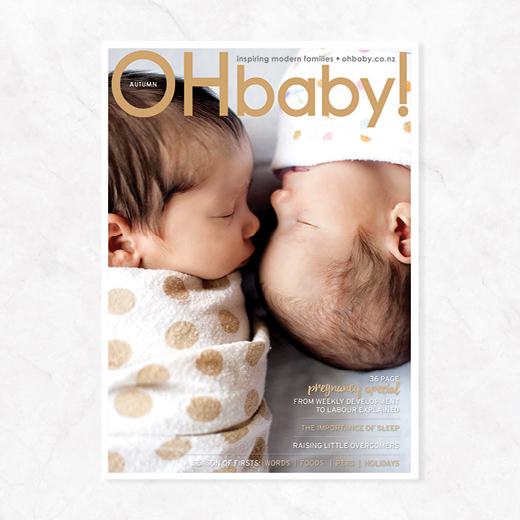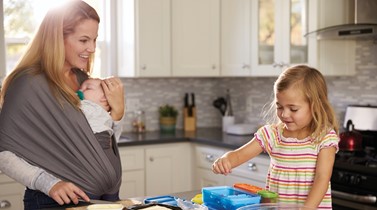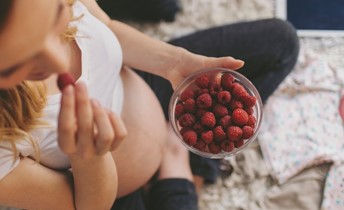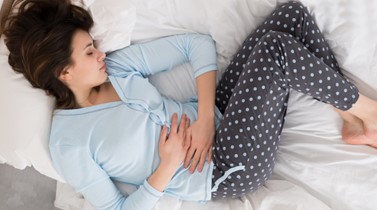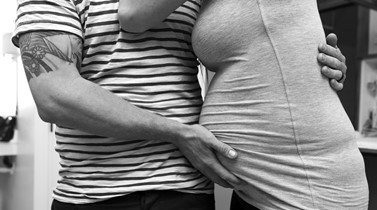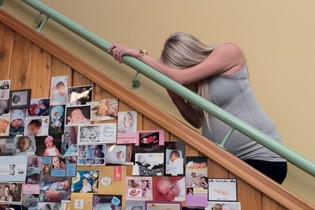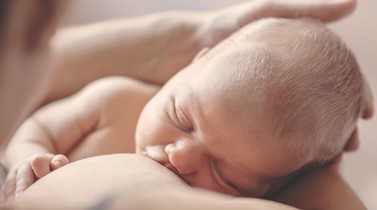How to optimise your chance of conception & a healthy pregnancy

How do you optimise your chances of conception and a healthy pregnancy? OHbaby! fertility specialist Dr Andrew Murray explains.
Most of us have heard of the term 'biological clock', but what influence does this worrisome timepiece have over the making of babies? As fertility experts, what we are referring to with this term is the reduction in egg quantity and quality that comes from increasing age.
When a baby girl is born, she has approximately one to two million eggs. By puberty, it’s 400,000 and by her mid-thirties she has around 25,000 left. Now 25,000 eggs still sounds like a lot, but a major issue is that women tend to ovulate their best eggs when they are younger. This is why difficulty conceiving and issues like miscarriage are more common as you get older.
Imagine you have a jar of jelly beans on the day you are born. This represents the total number of eggs you will ever have. The ‘good eggs’ are the coloured jelly beans and the ‘bad eggs’ are the black jelly beans. Most people don’t like black jelly beans, so if you were to pass the jar around, sharing them out over time, eventually the majority of the jelly beans left in the jar would be black ones. In other words, the older a woman is, the higher percentage of ‘bad eggs’ she has, resulting in a lower chance of conceiving naturally.
Don't delay
People often ask what can be done to optimise their chances of conception, healthy pregnancies and, thus, healthy babies. Our top advice is don't delay. At age 30, the chance of conceiving naturally is around 20% per month, by age 40 it is 5%, and by 45 it drops to about 1%.
If you have already been trying to conceive for a while, it’s a good idea to see a fertility specialist to get some basic fertility tests done. Among these is a blood test (AMH) that can give an indication of how your egg reserves compare to other women of your age. If you are over 35, it’s best to seek help after six months of trying, also if you are younger – because in that age group it really shouldn’t take too long if all is well. If you are between 28 and 35, it is reasonable to try for up to a year, but if you are concerned, getting a check-up is never a bad idea. A first consultation at Fertility Associates is the initial appointment to get tests underway and measure your own unique fertility.
Watch your weight
Having your weight in a healthy range will not only optimise your chances of getting pregnant, but also minimise your risks of pregnancy complications. Women who are too thin often stop ovulating, and may be at increased risk of premature labour. Women who are overweight have lower fertility, and increased risks of miscarriage, pre-eclampsia, and diabetes in pregnancy. Children born to overweight mothers have a much higher risk of being obese and developing diabetes later in life. The ideal weight range to aim for is a BMI between 20 and 25.
Stub out smoking
This should be pretty self-explanatory – we know smoking is bad. Smoking halves the chances of conceiving each month and doubles the chances of miscarriage. It also can be associated with growth restriction in the baby and increases the risk of pre-eclampsia. It’s not just the women who need to quit. The partners of men who smoke, even if they are non-smokers themselves, have higher risks of miscarriage. This is thought to be due to the detrimental impact smoking has on sperm DNA. Some research has also shown that the children born to couples where the father is a smoker are four times more likely to develop some form of childhood cancer than non-smokers. If ever you needed a reason to quit, becoming a parent is one of them.
Cut down caffeine
This isn’t easy or fair, and this is only for the women, but caffeine intake of more than 60mg per day results in an increased time to conceive (around eight months longer in one study) and lower success rates in fertility treatment programs. It’s possible caffeine isn’t good for egg quality. A decent barista-made coffee will have up to 150mg of caffeine. Most energy drinks (apart from being packed with sugar) have more than 60mg per serve. My advice is to go decaf when trying to conceive, or at least cut down to just one decent coffee a day, if you can’t get by without your ‘fix’. There is no research proving caffeine is bad for sperm health.
Lose the booze
The problem with alcohol in pregnancy is that the lowest ‘safe’ dose has not been established. Although it is likely that the occasional glass of wine during pregnancy is not harmful, there is no good evidence of a safe minimum intake. As a result, the Royal Australian and New Zealand College of Obstetricians and Gynaecologists (RANZCOG) and the New Zealand College of Midwives (NZCOM) both advocate avoiding alcohol for women who are planning pregnancy or who are already pregnant.
Stress less
Whether stress causes infertility or not is a much-debated issue, but one effect it can have is to interrupt a normal sex life, resulting in less frequent sex. Extreme stress can switch off ovulation completely, but that is fairly rare. Reducing stress is easier said than done, but finding an activity that works for you, whether it is exercise, a hobby or meditation, is always a good thing to do for your health.
Get a pre-conception check-up
Before starting to try and conceive, make sure you are up to date with your rubella immunity. Your GP can arrange that with a simple blood test. That visit would also be a good chance to make sure your cervical smear is up to date. Also, don’t forget to start taking folic acid. This is proven to reduce the risk of spina bifida, and ideally should be started two months before you conceive.
Time it right
To make a baby there are three vital ingredients: eggs, sperm, and the ability to get them together. Let’s start with the eggs. Ovulation is the process where an egg is released from the ovaries. It generally occurs 14 days before the next period. If your periods are reasonably regular, say 26 to 30 days, then there is a good chance you are ovulating. However, if your periods are irregular or it's longer than five weeks between periods, then you may not be ovulating reliably. If your periods aren’t regular, then you should see your doctor for more accurate testing.
Dr Andrew Murray is Medical Director of Fertility Associates, Wellington. He is also a senior lecturer at Wellington School of Medicine and a consultant obstetrician and gynaecologist at Wellington Hospital.

AS FEATURED IN ISSUE 37 OF OHbaby! MAGAZINE. CHECK OUT OTHER ARTICLES IN THIS ISSUE BELOW
